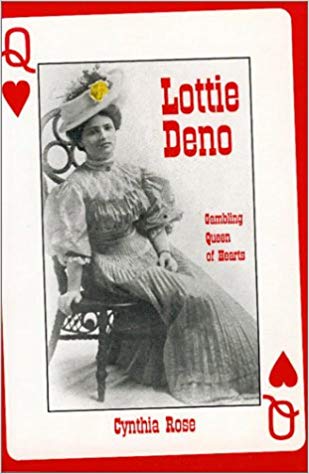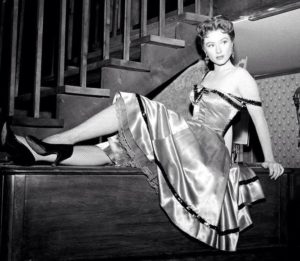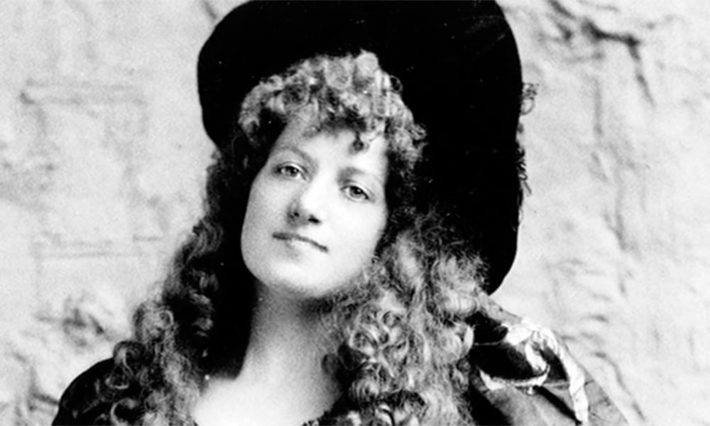Lottie Deno: Gambling Queen of Hearts by Cynthia Rose – Clear Light Publishing. Carlotta J. Thompkins, also known as Lottie Deno was a famous gambling queen known for her poker skills as well as her courage. The legend surrounding the origin of her most famous pseudonym tells that one night, Lottie won every hand of cards against any man brave, drunk or foolish enough to take her on. After this, a drunken cowboy shouted from the corner of the saloon, “Honey, with winnings like them you ought to be called Lotta Dinero!”
 In 1865, Lottie arrived in San Antonio and began working as a house gambler for a wealthy Georgia family called the Thurmonds. It was during this time that she met and fell in love with Frank Thurmond, a fellow gambler.
In 1865, Lottie arrived in San Antonio and began working as a house gambler for a wealthy Georgia family called the Thurmonds. It was during this time that she met and fell in love with Frank Thurmond, a fellow gambler.
After being accused of murder, Frank fled San Antonio and Lottie followed. The pair traveled for many years throughout the frontier areas of Texas. Cowboys and traders flush with cash during the period became targets for gamblers in frontier communities. It was at Fort Griffin, where Lottie lingered for some time, that her notoriety and legend became most established. Gaining fame as a gambler Lottie became associated with various old west personalities, including Doc Holliday.

During her travels she gained numerous nicknames. In San Antonio she was known as the “Angel of San Antonio.” At Fort Concho she became known as “Mystic Maud.” At Fort Griffin she was called “Queen of the Pasteboards” and “Lottie Deno.” It was this last moniker by which she became best known. Her escapades during this period became part of the folklore of the American Wild West.
In 1880, Lottie and Frank were married in Silver City. They were forced to put an end to their life of gambling and hedonism after Frank stabbed a man with his bowie knife while acting in self-defense. This was the second time in so many years that Frank had to defend himself with fatal results.
Miss Kitty Russell, a character from the long-running American radio and television show Gunsmoke, starring James Arness, is based on Lottie Deno.



